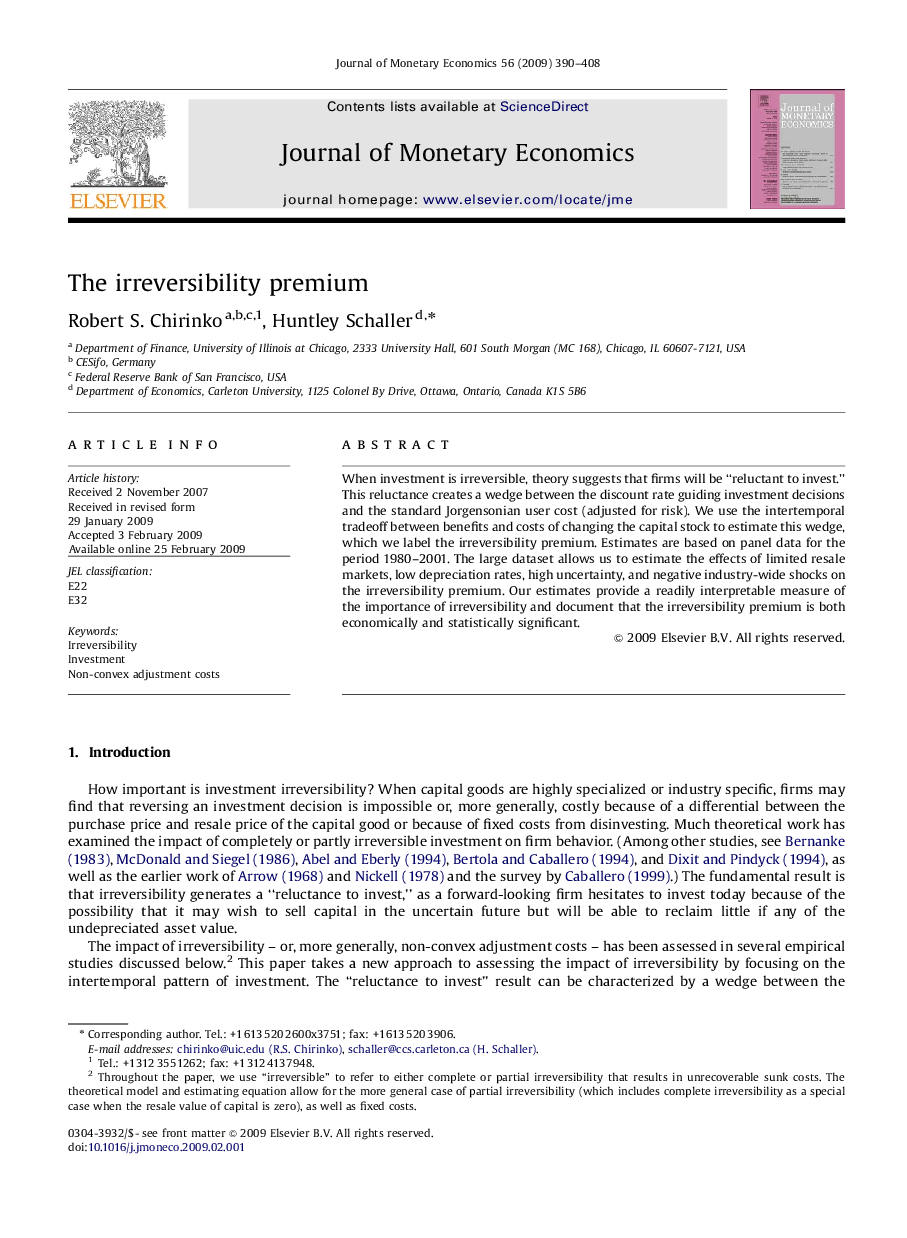| Article ID | Journal | Published Year | Pages | File Type |
|---|---|---|---|---|
| 967860 | Journal of Monetary Economics | 2009 | 19 Pages |
When investment is irreversible, theory suggests that firms will be “reluctant to invest.” This reluctance creates a wedge between the discount rate guiding investment decisions and the standard Jorgensonian user cost (adjusted for risk). We use the intertemporal tradeoff between benefits and costs of changing the capital stock to estimate this wedge, which we label the irreversibility premium. Estimates are based on panel data for the period 1980–2001. The large dataset allows us to estimate the effects of limited resale markets, low depreciation rates, high uncertainty, and negative industry-wide shocks on the irreversibility premium. Our estimates provide a readily interpretable measure of the importance of irreversibility and document that the irreversibility premium is both economically and statistically significant.
